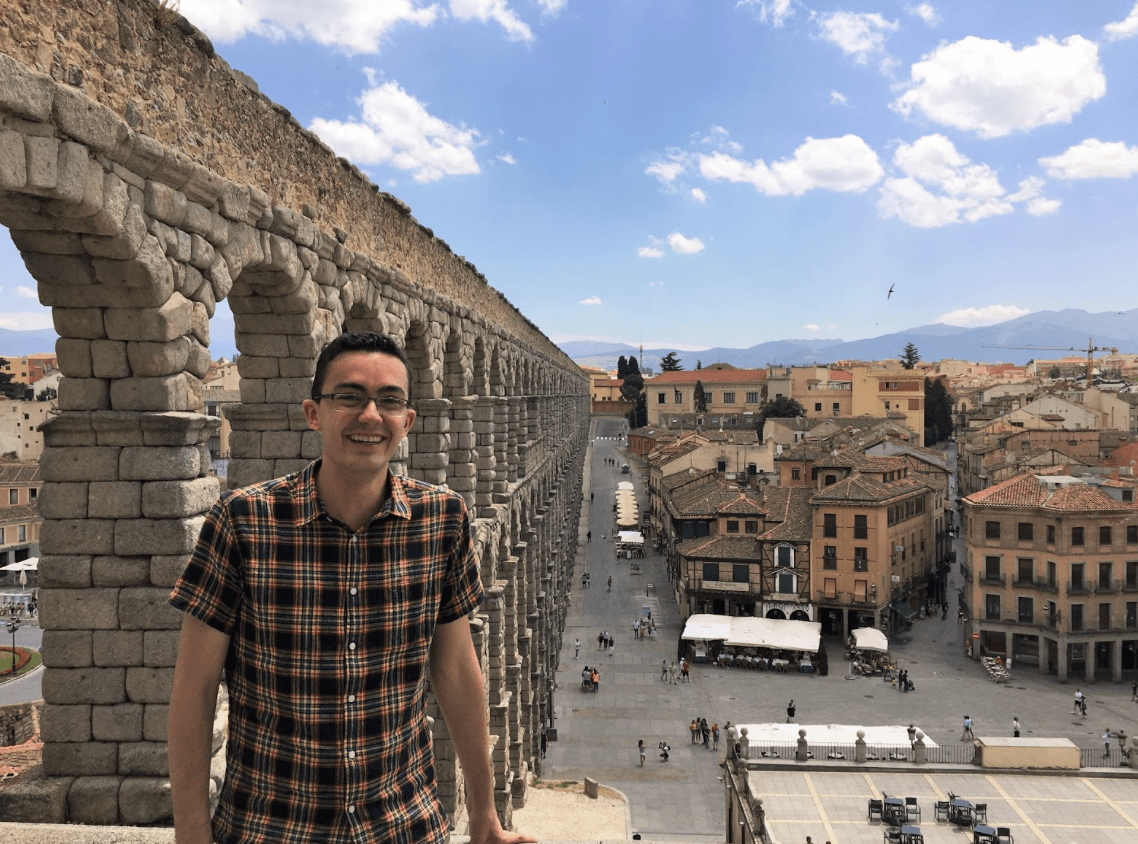Photo courtesy of Dominic DeFilipi | URI students enjoy their symmer vacation abroad. Contact the International Center for more information on how you can spend your summer in a new country.
While the end of finals week usually signals the freedom of college students from their educational responsibilities, a small number of students take the unique opportunity of using their summer to study abroad. At the University of Rhode Island, such summer abroad opportunities exist in Cape Verde, Israel, Italy, New Zealand, Spain, Ireland and more.
For Dominic DeFilipi, a fifth-year pharmacy and Spanish student, his study abroad trip to Salamanca, Spain was his chance to take the path less traveled. That is his advice for anyone considering going abroad.
“Take the path less traveled,” he said. “Every single experience I had in Spain that was unique and memorable, came out of ‘let’s go down this street,’ or ‘let’s explore down here.’”
With this attitude, he was able to find the confidence to travel to Portugal, Madrid and Barcelona, often times on his own.
What attracted DeFilipi to the program was how it worked with his busy schedule. “As a pharmacy major, there’s no room in our schedule for anything,” said DeFilipi. “The great thing about this program is that it’s so flexible in terms of timing. So, I could go abroad before going on internships, rotations or classes. That’s how I got to fit it in.”
But why Spain? Along with being a Spanish major, the experience was highly valuable in his pharmacy major. “I work in a pharmacy that has a high Latino population, so to be immersed [in the language and culture] and to be able to effectively communicate with patients is invaluable to a pharmacist and better patient outcomes,” he said.
Clara Crawford, a junior majoring in public relations and minoring in business, traveled to Dublin, Ireland for two months through a faculty-led school program. For Crawford, this was her first time being out of the country. Along with it being a part of her heritage, Ireland made the most sense to her, as it is an English speaking country.
“Going to an English speaking country first would be the best transition if I wanted to go to a non-English speaking country,” she explained.
Dublin reminded her a lot of Boston due to the bustle of the city, which appealed to her a lot as Boston is where Crawford wishes to work after graduation. At the end of her two months abroad, she was able to self-reflect on how life-changing this experience had been for her. It had made her feel more mindful of all the opportunities and things she had, while also learning that she was more independent and adaptable than she had thought.
For two students, their trip to Cape Verde, Africa was more than educational, as it was a tied deep to their roots. For Monee Reis, a senior double majoring in Africana studies and gender and women’s studies, and Jaidyn Quinn, a junior majoring in public relations and communications, this trip was a chance to connect with their own culture and better understand their heritage.
“I got to meet family that I’ve never met before, and they greeted me as if they have known me my whole life,” said Quinn. “I saw where my grandparents were born and I walked around the whole city that my grandmother grew up in.”
More than the familial ties, Quinn was able to see the Cape Verdean culture compared with what he experienced in the United States. “They were so underprivileged, we have it good here compared to what they have,” she said. “And yet they still seemed more happy and content with life.”
Along with the chance to delve into their heritage and the culture, Reis saw this opportunity as a chance to learn outside of the traditional classroom. When asked why Cape Verde and what relation it had to her major, Reis said, “It’s within the Africana region, and it was a really good way for me to connect my major and what I learn in the classroom to an outside experience in a completely different country.”
Quinn, furthermore, stressed the idea of making the trip more meaningful than just furthering your education. “Definitely go to a country you can relate to, it brings more sentimental value to the trip,” she said.





